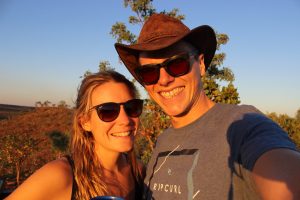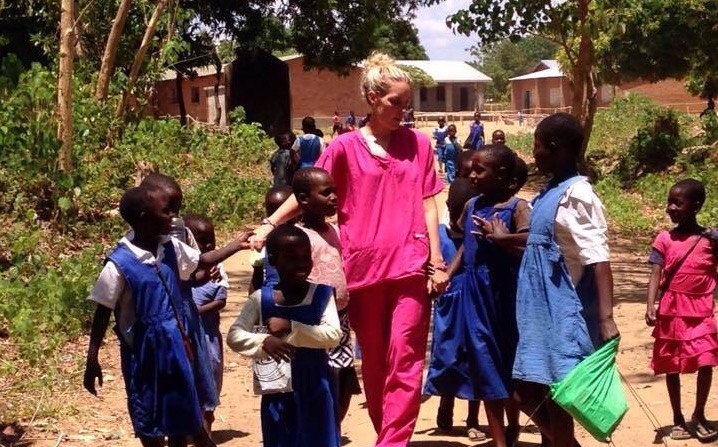 Kirsty Wooff is currently working in Emergency Medicine in the Northern Territory (Australia) but she is heading home in August to begin ST1 of GP training in the West of Scotland.
Kirsty Wooff is currently working in Emergency Medicine in the Northern Territory (Australia) but she is heading home in August to begin ST1 of GP training in the West of Scotland.
So why do you want this job?
The first question to practise before a job interview; the one we all know will make an appearance…right?
Well, not if you’ve chosen to pursue a career in general practice. Whilst my colleagues were preparing evidence of their accomplishments and practising expected questions, I was revising for the entrance exam and practising OSCE based scenarios. So why is the entry to GP training so different, and what does that mean for the specialty?
Why is the entry to GP training so different, and what does that mean for the specialty?
The application process for GP training consists of two parts. Part 1 encompasses the written exam testing both clinical knowledge and situational based judgement, part 2 is an OSCE style exam with 3 oral stations and a written station which looks at task prioritisation. According to the OSCE guidance they are looking for participants to demonstrate four key qualities: empathy and sensitivity, conceptual thinking and problem solving, communication skills and professional integrity. Four qualities which are key to being a good doctor, let alone a good GP.
I want to be a GP. I think it can be one of the most rewarding fields of medicine. I’m excited to begin training in a career where I can, hopefully, provide both great quality and continuity of care within the community. The relationship you can build with patients is a really appealing aspect to me as is the idea of being a generalist specialist. Knowing a bit of everything and relying on strong clinical acumen are two key components of being a GP that drew me to the speciality.
I want to be a GP. I think it can be one of the most rewarding fields of medicine… I was ready to tell the world this but then no-one asked me.
I was ready to tell the world this but then no-one asked me. I didn’t expect to be asked by my current colleagues (I’m a young female doctor; I mention GP training and I get a knowing nod…) but I did expect to get asked by my future colleagues – surely they would want to make sure I was committed to GP training for the right reasons and that I might actually add something to the profession?
I was fortunate enough to get a place on the training programme I wanted and I was delighted. I also felt, however, a bit disappointed: did it even matter that I’d actively chosen to become a GP and if the application process was so disinterested in me on a personal level, would the training process be the same?
What I’m advocating for here is one simple question. It doesn’t have to be part of the marking criteria but, by asking it, we’d be changing the way applicants felt.
Why do you want to be a GP? So simple yet so crucial. Not only does it infer that we are interested in the applicant on a more personal level, it also infers that as a speciality we care about who becomes a GP. We want people that want to be GPs. We want people that will make good colleagues. We want people to be proud to be a GP. Surely it’s in our favour to find applicants who have actively chosen to become a GP?
It’s a common flaw within the medical world that GPs aren’t given the recognition or respect that they deserve but how can we expect our non-GP colleagues (and members of the public) to respect us if we don’t treat ourselves with respect.
We don’t ‘fall into’ GP training; we actively choose it as a rewarding and fulfilling career and it’s time we begin to recognise that.
Featured image: Austin Neill










5
Thanks Kirsty for your article – you make an excellent point. Medicine is in danger of losing the human touch as we are increasingly encouraged to be concerned with applying the correct protocol to the data sat in front of us rather than rsponding to the person that data relates to with care and compassion. Sometimes we need to try and do the good thing that is unmeasurable rather than the measurable accurate thing. We make a mistake when we are only interested in what can be measured and it sounds that this mistake has crept into the selection process too. For what it’s worth I for one am glad you’re heading into General Practice and are doing so for all the right reasons. I wish you well – it indeed a most rwarding job and hope you enjoy it as much as I do.
Thank you Peter. I think I just found the whole selection process impersonal and frustrating and on reflection I felt that just the addition of one simple question would change how it had made me feel – a straightforward solution!
Yes. I could not agree more.
I recently came across a quote from Ben Bergeron (CrossFit coach) that I think is relevant here:
‘talent x effort = skill. Skill x effort = accomplishment. Effort counts twice’
And with this in mind, if we’re not picking people who want to put in the effort then by definition it doesn’t matter how much talent and skill they have. We need people with passion in their soul for our cause! Congratulations on joining teamGP! We’re really pleased to have you on board